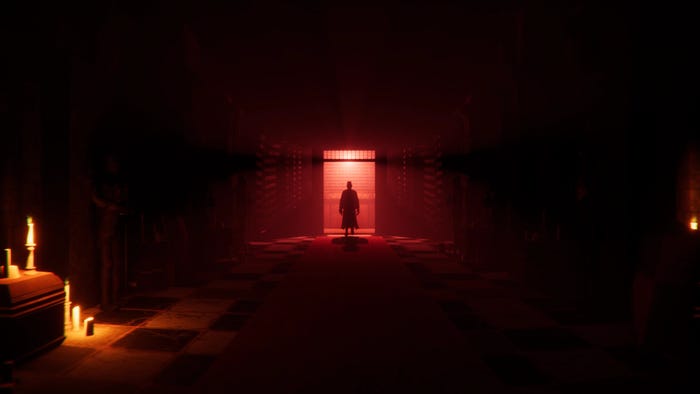Crystal Dynamics creative director and senior designer Tim Longo (Tomb Raider franchise) sees the development process as a metaphorical road trip, and at the IGDA Leadership Forum, he has been discussing how game concepts are formed, focusing on th
November 8, 2007

Author: by Christian Nutt, Leigh Alexander
Crystal Dynamics creative director and senior designer Tim Longo (Tomb Raider franchise) sees the development process as a metaphorical road trip. Therefore, at the IGDA Leadership Forum in San Francisco, his talk discussed how game concepts are formed, focusing on the challenging topic of idea generation early in the creative process -- "you start with nothing, and you need to get to something tangible," he says. Longo explains Crystal Dynamics' process: "We have a big preproduction time and we have a small slice we call the preconcepting phase... it's the part of time where you are embarking on many ideas at once and you're trying to find the right one. And then obviously once you find one direct you want to develop more, that would be the concepting phase." So what drives these "road trips"? As Longo describes, "Really often someone has a really good idea... the ideas are all well and good but really, it's the questions that we need to be asking. What you don't have should drive the questions, not the cool ideas somebody had. The questions are the hard part, and you really need the answers." Longo recommends that teams "level the playing field in this early phase of idea generation... fresh ideas come from that atmosphere, not from a hierarchical atmosphere where a leader shoots down the ideas right away." He added, "I recommend people to talk to anyone who doesn't work in the industry." Longo highlighted some questions to address before beginning: "Do you have everyone, before you set off on your road trip? Do you have all of your discipline leads? Make sure you have equal representation as early as you can even in the preconcepting phase of the project... this really comes down to ownership, early ownership. Yes you can convince them of an idea later on, but if they feel like they have owned it or someone in their department has owned it from early on, you'll get much more." Nonetheless, he advised, "At the end of the brainstorming session somebody needs to drive the car... someone has to make the call on moving forward to the next destination." Longo continued, "Vision doesn't have to come first. You don't have to start out of the gate with the 'supreme super-vision'... the tools can really drive the vision. Encourage your creative leads to not be dogmatic about the vision early on." He stressed that better concepts come when you continue to move along the road with a willingness to take detours. To drive inspiration, he recommended: "See if there are some fundamentals you can break out on why you're inspired. Ask the questions." The preconcepting phase "should really be [more] about demonstrable result than 400 page design documents," Longo said, explaining how he's been "kind of document-light," though recommending small, more-focused documents. "It's more for you than for someone who's reading them, frankly," he explained. "It forces you to collect your thoughts, so [you can] talk to somebody rather than forcing people to read it." Longo also cautioned against "travel fatigue." He explained: "This is just the point that sitting in a musty meeting room all day brainstorming is not the best way to find ideas. It's a simple thing -- but as far as morale goes, it's great... it keeps the tam motivated." He concluded, "I think that a lot of these concepts are scalable and modular, so you can scale them down. Some of these techniques can happen in an hour... and sometimes you're handed a concept and you need to go forward. There really isn't an answer for that. The proposition today for the leaders in the room is that you need to make more time for that, you need to spend the time to try this out... I'm lucky, at Crystal they understand that, and give us the time to figure this out. Convincing the higher-ups you need the time is a really hard one... my suggestion is that, within your boundaries, try to find ways to small detours off the road."
You May Also Like







